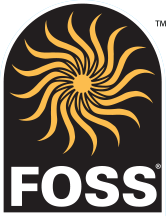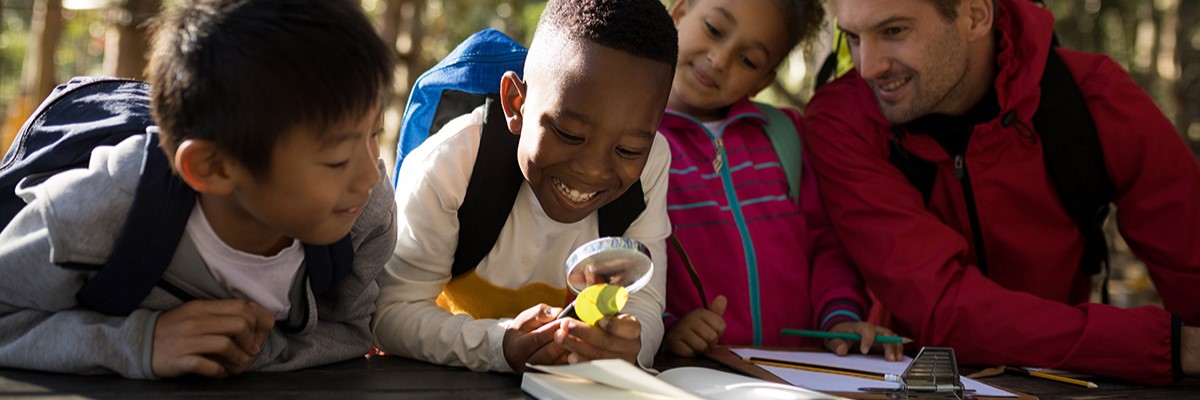The demand for scientific literacy grows each year, and educators are tasked with finding engaging ways to spark curiosity and cultivate understanding among young learners. The core science curriculum is at the foundation of this effort, and the implementation of curricula is a significant task for any school district.
At Grand Forks Public Schools in North Dakota, this challenge was met with a dynamic approach focused on putting students first and empowering their curiosity by not just teaching science, but letting them do science.
Grand Forks schools enriched their classroom experience by integrating the FOSS® (Full Option Science System™) modules into their curriculum and implementing a comprehensive professional learning plan for K-6 teachers. More importantly, they set their students up for a memorable learning experience.
But don’t take our word for it. Along the way, we got feedback from the teachers and students themselves.
Engaging the World of Phenomena
Science has a natural ability to engage students of all ages. We witness new and exciting scientific discoveries all the time. But our curiosity for exploration also lets us see the everyday mundane from a different perspective.
There’s always something new. Like, right now, we just get to play with bugs. I mean, that’s just ridiculous fun. And then before that, we were making circuits, and I want to be a robotics engineer when I grow up, so I find that stuff very interesting. We did soil stuff and we also started that one that was all like the sand and you would throw water on the sand and see what it would do.
Malachi, 4th Grade, Grand Forks School District
Curiosity Leads to Creation
In the Grand Forks School District, embracing FOSS began with a pilot program that tested three different science resources for K-6 classrooms. After the pilot, teachers’ feedback was unanimous: they wanted more time to explore FOSS.
I think back to when we piloted some other curriculums for science before we decided to continue going with FOSS, I really noticed how this is so much more engaging and hands-on and you can kind of intertwine the writing and reading aspect and the online components. I just feel like this has everything working together.
Lindsey, 1st Grade Teacher
This led the district to extend the pilot, focusing on the FOSS resources to determine their full potential. Eventually, Grand Forks Schools decided on a specific version of FOSS. Nicole Krefting, the Elementary Curriculum Coordinator for Grand Forks, worked with FOSS Consultant Kristen Morehead to create a comprehensive professional development plan.
Implementation Year 1: Professional Development
In Year 1, Kristen led three 90-minute professional development sessions for each grade level, focusing on their respective Earth, Physical, and Life Science Modules. These sessions were delivered both in-person and via Zoom.
Alongside these teacher sessions, Kristen supported instructional coaches and administrators with a two-hour Zoom training on leadership, FOSS implementation, instructional look-fors, and Next Generation Science Standards (NGSS). Instructional Coaches attended the classroom teacher sessions to further enhance their capacity to use FOSS instructional practices.
Student Quotes
My favorite thing about the FOSS science kits is how we get to do the investigations hands-on with the group or with a partner. But my personal favorite investigation was the two substance mixtures because I thought it was really interesting on how two different products can make a whole new thing.
Kenzie, 5th Grade
My favorite investigation was when we did chemical reaction in a bag. I like that one because I watched it get super big and it was really cool to watch and we even made a whole new product. The new product was chalk and it was made from calcium chloride and baking soda, and I liked creating our own procedure.
Houston, 5th Grade
Additionally, Kristen created a professional development workshop for newly hired teachers, which combined recorded segments with live support from instructional coaches to provide a valuable resource for onboarding new teachers. This framework supported both ongoing staff development and new hires as the district moved into Year 2 of its curriculum adoption.
Curiosity Leads to Investigation
In year two of the plan, the goal was to take the program to the next level, emphasizing sustainability and ensuring teachers had the proper support to effectively guide their students.
Implementation Year 2: Grade by Grade
Kristen and Nicole devised a strategy that included grade-level focus groups and addressed the challenge of limited substitute teacher availability. The key objective was to help teachers get deeper into the material, see modeled lessons, and then reflect on and implement them with each module.
This approach also incorporated three-dimensional learning, sense-making, and notebooking to deepen the educational experience.
Student Quotes
They allow us to do hands-on activities like calcium chloride and white vinegar. They let us do the experiment with our own groups, so we don’t just have to watch the teacher.
Dashell, 5th Grade
My favorite thing about using the FOSS science kits was the draught stopper investigation. I liked trying to figure out what was behind the box and to build the siphon. It took me a while to figure out why it went in 100mL and out 500mL.
Haven, 5th Grade
People who don’t read and write well can still learn through the investigations. They can learn from the videos and online science books because you can check on photos and see videos.
Jackson, 5th Grade
The resulting structure featured five-hour sessions with one teacher from each campus at each grade level. This included three collaborative sessions for grades 3-5, with instructional coaches joining when possible, then dedicated time to support teachers for grades K-2. Every teacher received support in some form, creating a cohesive and comprehensive professional development program.
As the coordinator for the district’s elementary curriculum, Nicole provides ongoing assessments of the implementation’s effectiveness. This process includes observations of the quality of classroom discussions, the vocabulary used by students, and the willingness of teachers to take risks with the new approach.
Instead of just us telling the kids, we guide them with questions, so they feel like they are able to take more ownership in their learning. And I think they get more excited about it when they make the discoveries.
Ariel, First Grade Teacher
When our ML (multi-lingual) coordinator for the whole district is meeting with the building level ML teachers, she will say if anything, don’t let the ML kids miss science because they get so much more out of that science vocabulary and everything. I think she feels like science is like the best area for them to really understand some of that content vocabulary.
Paige, 4th Grade Teacher
FOSS is also hearing from administrators who are seeing teachers successfully implement the FOSS model in their schools. The success of this implementation has even prompted interest in applying a similar model to other curricular areas.
If you look at the standard of what we want kids to be in terms of articulating, having a rationale, defending your understanding, explaining your thinking, public speaking, teaching others… for me, that has been the student engagement part of what Foss has brought. And then with that comes interest. You can connect it to their world and make them be the ones doing the majority of the talking and thinking and analysis. That philosophy has fit well with how we teach all content areas, not just science.
Ali Parkinson, Principal, Discovery Elementary
FOSS is dedicated to integrating new teachers and building confidence among existing staff. They gather continuous feedback from teachers, because the teachers are the key to sustaining the program’s success.
I teach in a lower income school and a lot of my kids are on IEPs [Individualized Education Program] and struggle with reading. So I think having that visual or the hands-on and being able to connect real life with the concept or the vocabulary… to be able to connect those together, it’s easier for them and it doesn’t make it as much of a frustrating moment of school. It makes it more exciting.
Sadie, First Year Teacher, 4th Grade
By implementing this systematic approach to professional learning and using FOSS Science Kits, Grand Forks Schools are equipping teachers with the tools they need and fostering a vibrant community of educators dedicated to nurturing the next generation of scientific thinkers.
Learn more from Nicole Krefting on the It’s Time for Science podcast. In the latest episode, she discusses the FOSS implementation at Grand Forks in further detail. It’s Time for Science is a monthly podcast available on multiple streaming platforms.

